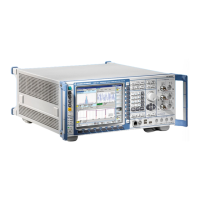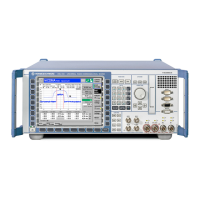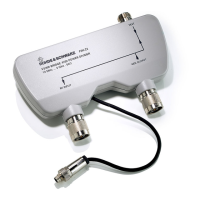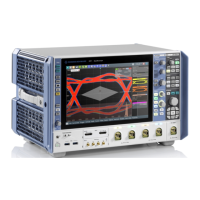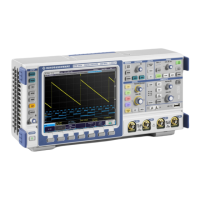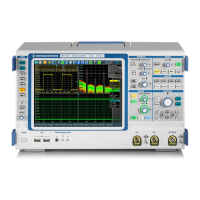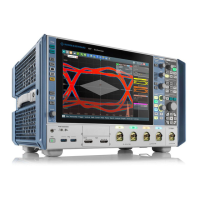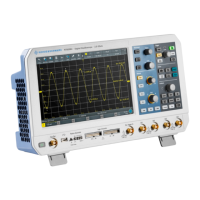Command Reference
R&S
®
CMW500
209User Manual 1173.9463.02 ─ 02
Usage: SCPI confirmed
Firmware/Software: V1.0.5.3
7.3.6 MMEMory Commands
The MMEMory system provides mass storage capabilities for the R&S CMW500. For
MMEMory commands related to command macros see chapter 7.3.1, "Macro Com-
mands", on page 196.
The following rules apply to parameters specifying files or directories:
●
Parameters for specification of file names and directory names are strings.
●
You can specify complete absolute paths including the drive name and all subdirec-
tories. For locations in a network use the Universal Naming Convention (UNC) format
'\\server\share'.
Examples: 'C:\TEMP\TRASH\test.txt' specifies the file named test.txt in
the directory TEMP\TRASH of the internal hard disk drive C:\.
'\\myserver\data\archive\test.txt' specifies the file named test.txt in
the subdirectory archive of the share data on the server myserver.
●
If you specify a string containing an absolute path but no drive or server, the default
storage unit is prefixed automatically (see MMEMory:MSIS on page 217).
●
If you specify a string containing a relative path, the current directory is prefixed
automatically (see MMEMory:CDIRectory on page 213).
●
Alias strings facilitate the entry of paths. To display the predefined alias strings and
the assigned paths see MMEMory:ALIases on page 210. The defined strings can
be combined with normal text to specify file paths. Example:
'@SAVE\myfile.dfl' specifies the file myfile.dfl in the save directory,
assigned to the alias @SAVE.
●
The use of wildcards ? and * is only allowed if explicitly stated for a command. Wild-
cards are only allowed in the last component of the string.
Example: 'archive\*test*' allowed, 'archi*\test1.txt' not allowed
●
A file name itself may contain the period as a separator for extensions.
●
A single period represents the current directory
●
A double period represents the parent of the current directory
●
Example: Assume that the default storage unit equals 'D:' and the current directory
equals '\user\data'. Then the following commands yield the same result:
MMEM:CAT?
MMEM:CAT? '*'
MMEM:CAT? '*.*'
MMEM:CAT? '.\*.*'
MMEM:CAT? '..\data\*.*'
MMEM:CAT? '..\data'
MMEM:CAT? '\user\data\*.*'
MMEM:CAT? 'D:\user\data\*.*'
File and directory names can be chosen according to Windows™ conventions; the
restrictions placed on file names known from DOS systems do not apply. All letters and
Instrument-Control Commands
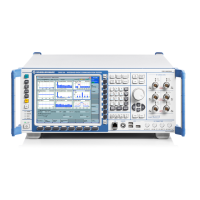
